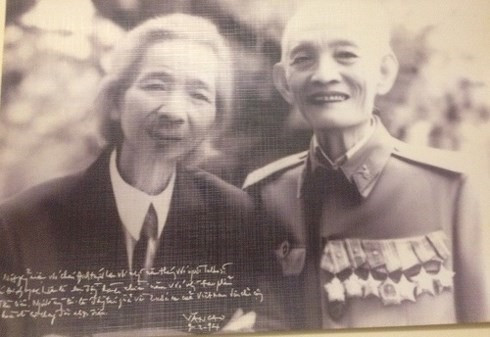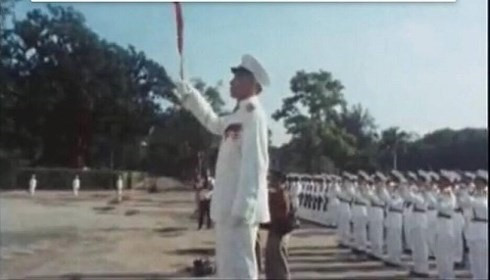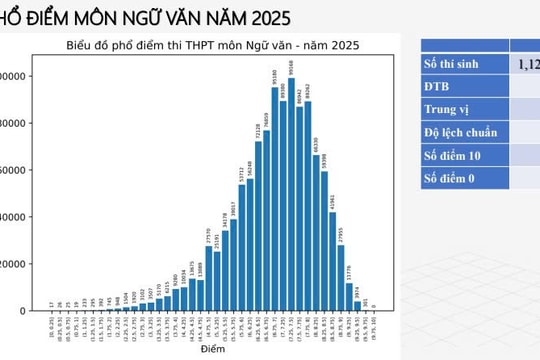Revealing the "second author" of Vietnam's National Anthem
Musician Van Cao, the first person to write "Tien Quan Ca" once admitted that there was another person who co-wrote this immortal song with him.
Musician Van Cao, the first person to write "Tien Quan Ca" once admitted that there was another person who co-wrote this immortal song with him.
 |
| Precious photo of musician Van Cao and musician Dinh Ngoc Lien. Photo: Document provided by the character's family |
The son of musician Dinh Ngoc Lien, Colonel Dinh Thang Loi, provided valuable documents. Among them is a photo with the handwriting of musician Van Cao, clearly stating: "A memory with my granddaughter Dinh Tuyet Lan (daughter of musician Dinh Ngoc Lien - PV) with the years with the great musician Dinh Ngoc Lien, who was my companion for many years with the first works. He and I were co-authors of the National Anthem of the Democratic Republic of Vietnam about the change of rhythm".
According to Colonel Dinh Thang Loi, this is the respectful way musician Van Cao speaks to musician Dinh Ngoc Lien.
He recounted: “Before being sung at the flag-raising ceremony on the morning of September 2, 1945, musician Dinh Ngoc Lien and musician Van Cao agreed to change two words. Specifically, shortening the length of the first “re” note in the word “Doan” and the “mi” note in the middle of the word “xac” to make the rhythm of the song stronger and more vigorous. And so, “Tien Quan Ca” sang heroic melodies on the historic Ba Dinh morning.”
Also during the flag-raising ceremony, the brass band led by musician Dinh Ngoc Lien performed the song “Marching Song”. Forever after, this is an “immortal” image associated with the nation’s National Day. In addition to “Marching Song”, the band also performed songs such as “Jubilant Dance” (Luong Ngoc Trac), “Destroy Fascism” (Nguyen Dinh Thi) and several other pieces.
 |
| Image of musician Dinh Ngoc Lien conducting the orchestra during the flag-raising ceremony on September 2, 1945. Photo provided by the character's family. |
According to Colonel Dinh Thang Loi, during the resistance war against the French, the orchestra led by musician Dinh Ngoc Lien became a military band battalion, performing on the day the Party Central Committee and the Government, along with President Ho Chi Minh, returned to the capital (November 1955). During the years of resistance war against the French, he arranged and transcribed many revolutionary songs, marking the first steps of Vietnamese instrumental music later on.
Musician Dinh Ngoc Lien is also the author of a number of trumpet ensembles such as:Phu Thong Victory, Spring Victory, The Port Comes to Us, We Have Uncle Ho, The Outpost Watchtower, Funeral March... For his contributions, he was awarded the title of People's Artist (1988) and the Ho Chi Minh Prize (2017).
Speaking about musician Dinh Ngoc Lien, musician Do Hong Quan, Chairman of the Vietnam Musicians Association, said that he is one of the elders of Vietnamese music. His instrumental works have made great contributions to the nation's resistance revolution.
"His whole life was devoted to composing and developing instrumental music. He and his band played the first revolutionary musical works and elevated them to classics such asMarching Song, Sacrificing Yourself for the People, Lo River, Vietnamese Soldiers, Through the Northwest, Leader's Song...
The compositions and special works themselves are still used today as theme songs on Voice of Vietnam (VOV), radio and television stations, and trumpet signals of the Vietnam People's Army," musician Do Hong Quan emphasized./.




.png)
